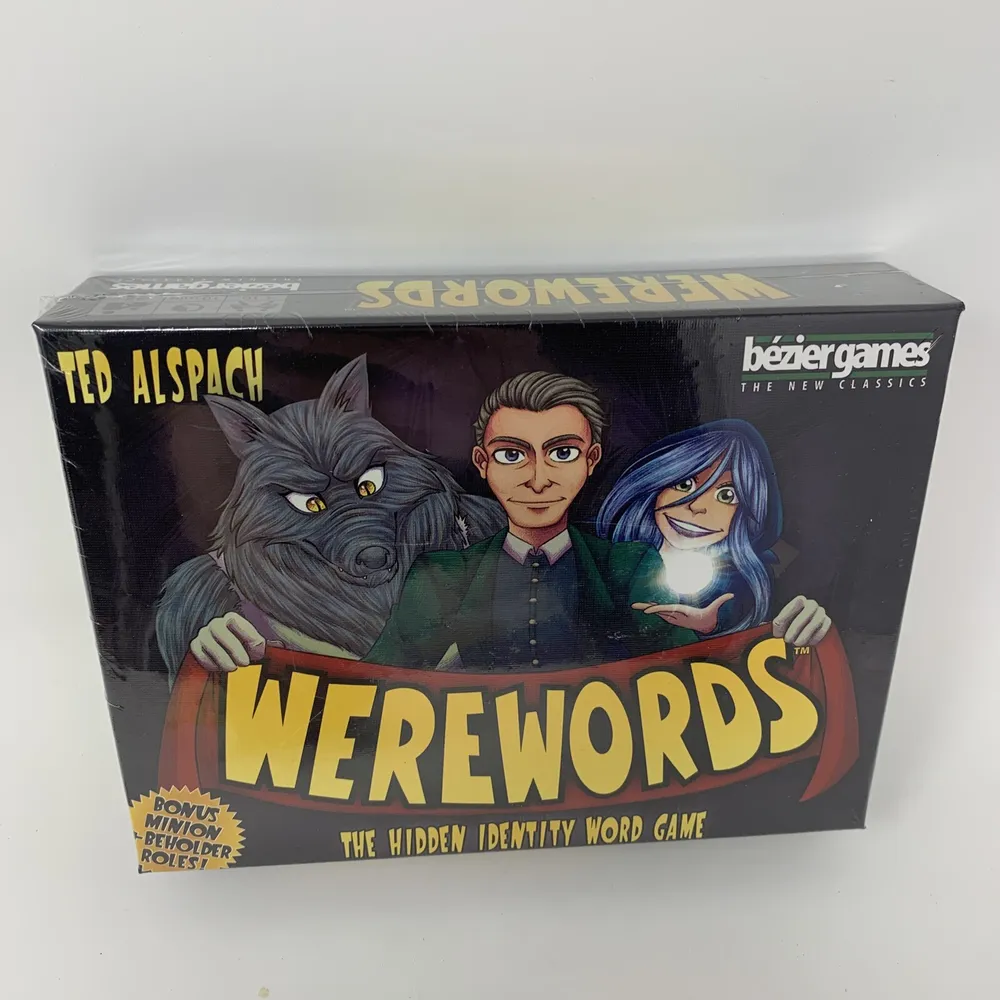Werewords (2017)
Werewords
“Werewolf” is a social deduction game that originated as “Mafia” in 1986, created by Dimitry Davidoff, a Russian psychology student. The game models a conflict between two groups: an informed minority (the mafiosi or the werewolves) and an uninformed majority (the villagers). The game has since evolved and inspired various versions, such as “Ultimate Werewolf” by Ted Alspach, published by Bézier Games in 2008.
Why is Werewords Popular?
“Werewolf” is popular due to its combination of deception, manipulation, and role-playing elements, which make it engaging and entertaining for players. The game has spread across the world and has been played at various tech events, conferences, and gatherings. Its popularity can also be attributed to its adaptability and the ability to accommodate large numbers of players.
Game Components of Werewords
How To Setup Werewords
To set up Werewords, the Mayor selects a secret word from the available choices while the other players’ eyes are closed. The Seer then opens their eyes to see the chosen word, followed by the Werewolf. The roles are randomly assigned, and the game begins with the players asking “yes” or “no” questions to the Mayor to guess the word within a 4-minute time limit.
Gameplay Mechanics and Game Objective
Player Experience
Playing Werewords is a thrilling experience that requires quick thinking, strategic questioning, and a bit of bluffing. The game is designed for 4 to 10 players, making it ideal for larger groups. Each game lasts about 10 minutes, but the addictive nature of the game encourages multiple rounds. The dynamic between the Seer trying to help without being too obvious and the Werewolf attempting to mislead adds a rich layer of strategy and social interaction.
Pros
Cons
Personal Thoughts on Werewords
Werewords is perfect for groups looking for a fun, interactive game that combines word guessing with social deduction. It’s an excellent choice for families, friends, or coworkers who enjoy quick, engaging games that promote teamwork and strategy. The game’s short playtime and easy setup make it a great addition to any game collection, ensuring it will be a hit at any social gathering.
We are supported by our audience. When you purchase through links on our site, we may earn an affiliate commission, at no extra cost for you. Learn more.

